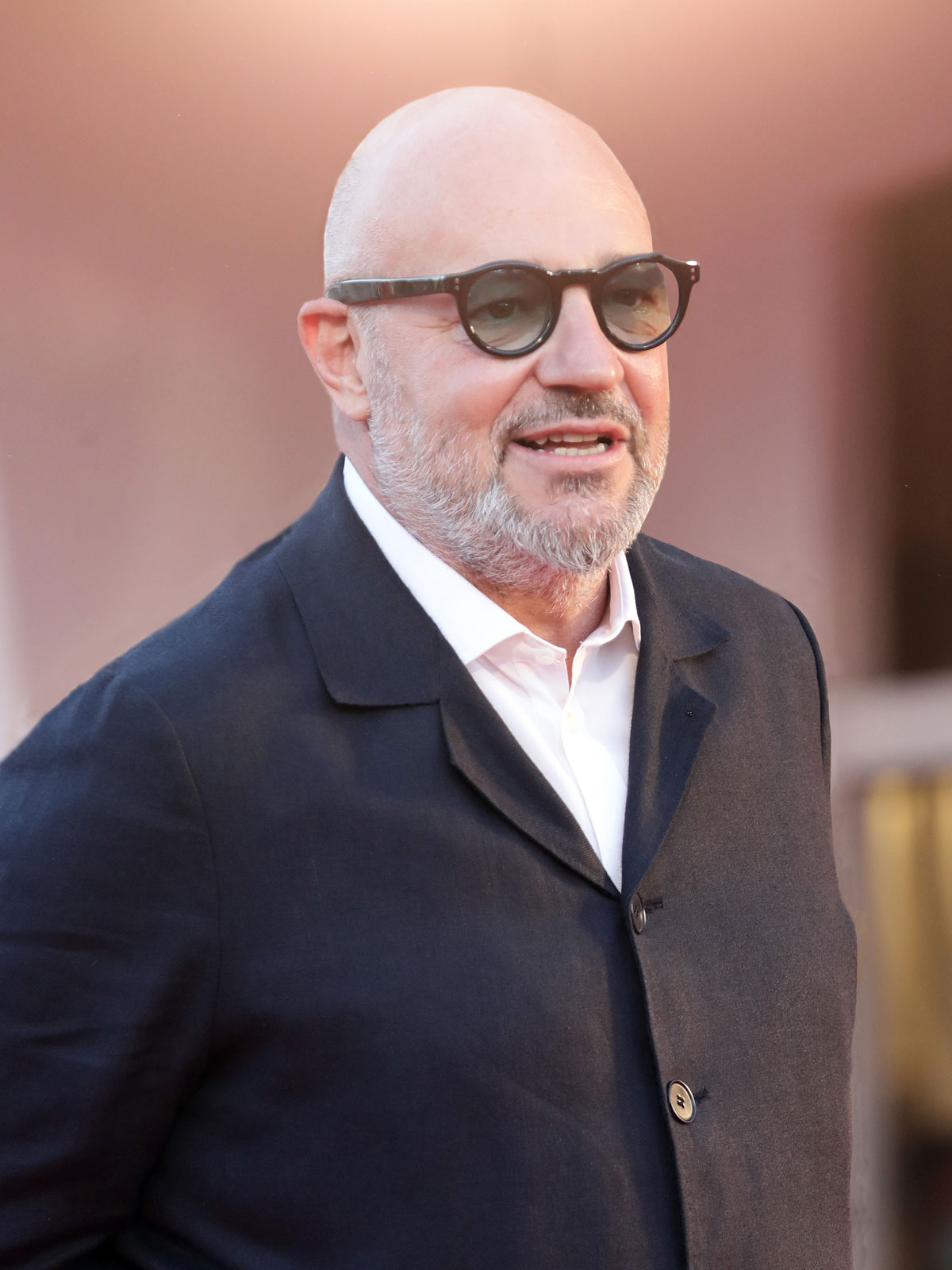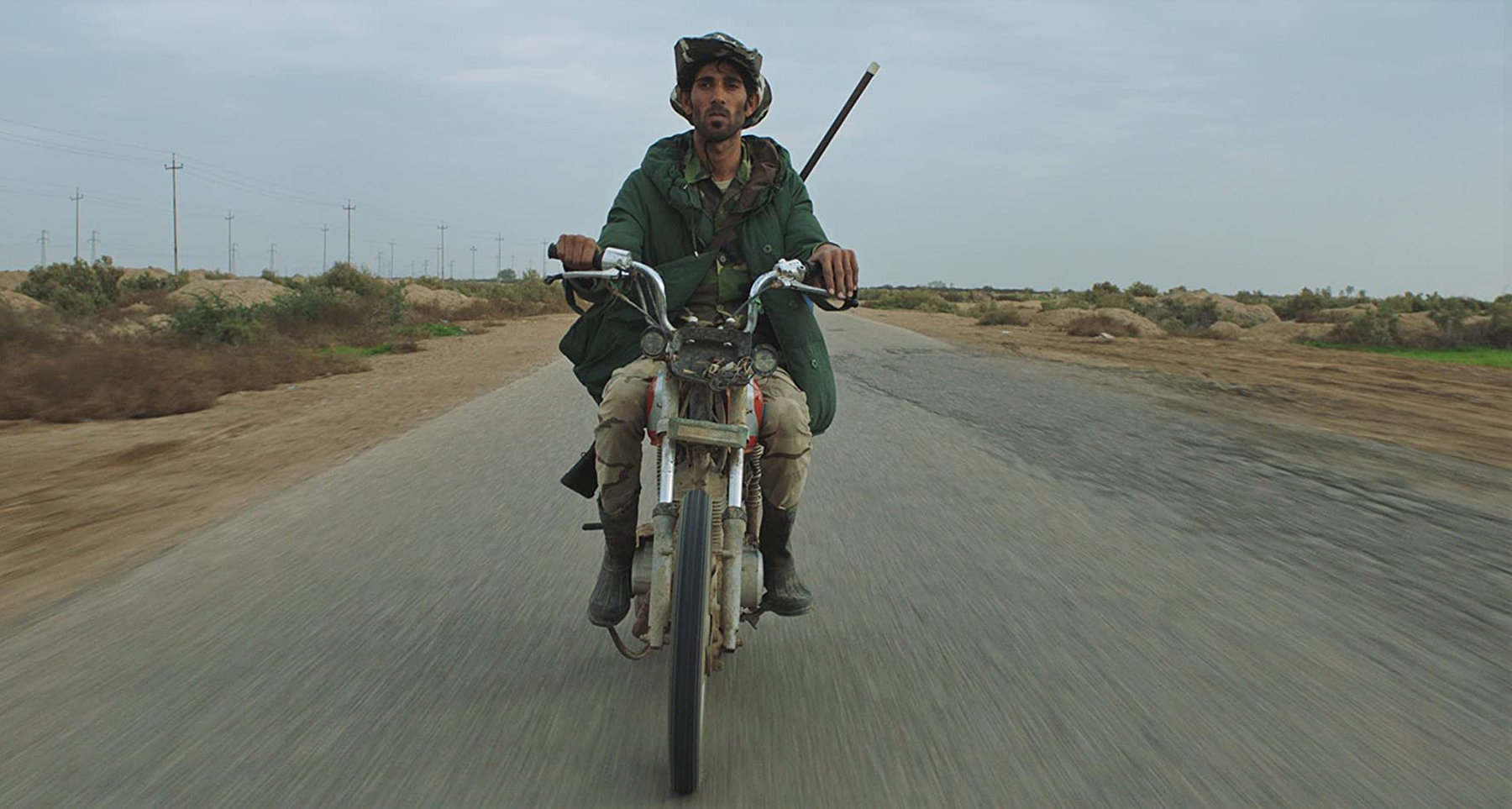
- Film
“Notturno”: Gianfranco Rosi’s Urgent Anti-War Documentary
The Italian American documentarian Gianfranco Rosi, who’s 56, is one of the most acclaimed filmmakers working in cinema today. His latest feature, Notturno (‘Nocturne’), shot over the course of three years in Syria, Iraq, Kurdistan, and Lebanon and offers a timely and urgent chronicle of ordinary people in war zones of the Middle East as they struggle to exist and hope for more peaceful lives.
The film had its world premiere at the 77th Venice Film Festival on September 9, then screened at the Toronto Film Festival on September 15, and will play at the New York Film Festival on October 6. (It was also selected by Telluride Film Fest prior to its cancellation due to the COVID-19 pandemic.)

Over the past two decades, Rosi has produced an exemplary body of work, which offers a collective portraiture of our turbulent times. All of his films have been shown in major festivals. His 2013 Sacro GRA won the Golden Lion at the 70th Venice Festival, while his 2016 film Fire at Sea won the Golden Bear at the 66th Berlin Festival. Fire at Sea was also nominated for Best Documentary Feature Oscar.
Rosi is the only documentarian to have won two of the highest awards of the world’s three major film festivals – Cannes, Venice, Berlin. As such, he belongs to a small but distinguished group of directors. including Michael Haneke, Ang Lee, Ken Loach, and Jafar Panahi, who have achieved that.
Born in 1963 in Asmara, then Ethiopian – occupied Eritrea, he was sent back to Italy when he was 11 due to the ongoing War of Independence. At age 19, Rosi dropped out of the University of Pisa, where he studied medicine, to attend the New York University Film School. After graduation, he spent five years there documenting life around the banks of the Ganges, resulting in Boatman (1993). Below Sea Level, shot over four years among the residents of the unincorporated community of Slab City, California, won the Best Documentary Award of the Orizzonti section of the 2008 Venice Festival.
Rosi came back to Italy to work on Sacro GRA (2013), for which he lived for three years in a trailer near the Grande Raccordo Anulare, a circular ring road motorway encompassing metropolitan Rome, documenting people around it. The film was the first documentary to be entered in the competition at the Venice Festival and won the Golden Lion, thus becoming the first documentary in Venice’s history and the first Italian film in 15 years to receive the award.
In 2016, he shot Fire at Sea for almost a year in Lampedusa, focusing on the crisis as seen through the people of the island, such as a boy named Samuele and migrants’ doctor Pietro Bartolo. Screened in competition at the Berlin Festival, it won the top award, the Golden Bear, and received widespread critical acclaim upon its release. The film was the first documentary submitted by Italy for the Best Foreign Language Film Oscar, though it didn’t make the final shortlist; it did win the European Film Award for Best Documentary.
Rosi’s brand of direct observational cinema becomes more distinct and personal with each film. For Notturno, as usual, he also acted as his own cinematographer and sound recorder, affording him greater control over the film. Remarkably, Rosi earned the trust of his younger subjects, gaining access to intimate moments and naked emotions, the kinds of which some adults would have censored.
The film opens with soldiers running in the early morning, observing their training, hinting at the scale of militia forces that continue despite years of conflict. Rosi then shifts to a group of women praying at a site of mass executions; there are tears and wails among the ruins. Exterior shots capture ravaged buildings and scarred remains of entire communities. We witness a mother as she revisits voice messages left by her daughter. The recordings serve as a diary – we feel the terror in the daughter’s shaky tone, seeking comfort from her mom while fearing imminent death at any moment.
The strongest, most devastating sequence is set in a classroom, depicting a series of interviews between a psychologist and some elementary school children held captive with their families by ISIS. Rossi describes the cruel atrocities via the kids’ unfiltered words, as they respond to the therapist’s probing questions. When verbal communication and words fail them, they draw their memories, often in a childish and childlike style. There’s a whole wall covered with brutal sketches of the children’s traumas.
Rosi then takes his piercing camera inside a prison where ISIS soldiers pay for their crimes. The prisoners enter into a room where they sleep on the floor, and as the space is hardly sufficient, they shift about to make do. Cut to a living room in a civilian home where an anxious mother is putting her children to bed; they, too, barely have enough space. Like the war criminals, the survivors are anxiously seeking some peaceful sleep. But sleep doesn’t come easy to either group – how could it?
The diversity of locations presents a more panoramic view of the plights and struggles, seen in a series of vignettes. For example, an abandoned desert fort, actually a former prison, shows some mothers who gather to lament the tragic deaths of their young ones. Rosi provides methodical snapshots of a world in crisis through evocative portraiture and meticulous attention to detail. Notturno tells the story of those who remain behind, observing the resilient endurance of life as it is lived in war zones with no peace in sight.
Observational cinema at its most provocative – and poetic – Notturno doesn’t need voice-over narration or words or musical soundtrack because its images are so powerful. Providing a thoughtful anti-war essay about the cost of wars and their human toll, Rosi uses tableaus that capture ‘everyday’ life during senseless and endless conflicts.

